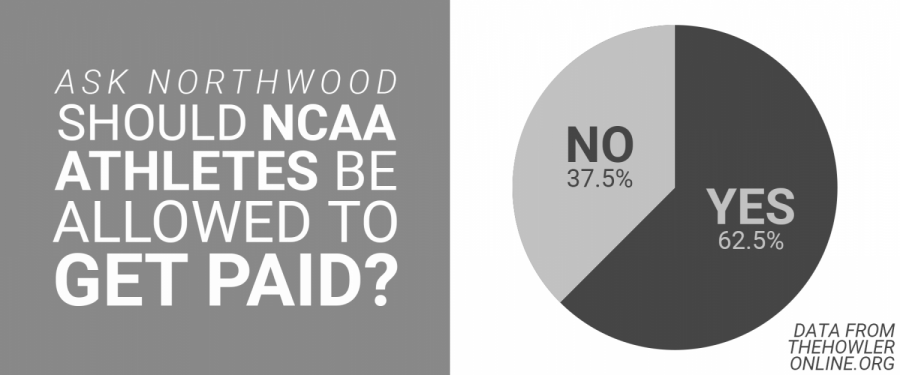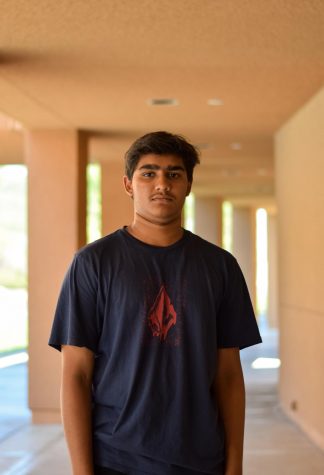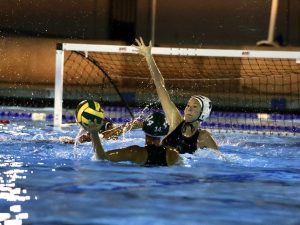College, commitment, compensation: Are college athletes fairly imbursed?
October 28, 2019
With recruitment season in full swing, the NCAA’s strict incentive policies have been a topic of interest. Although colleges offer all-expenses paid trips in exchange for the athlete’s commitment to the sport, viewers of collegiate teams are engaged in an intense debate regarding an athlete’s ability to profit on their name, before an athlete’s professional career.
Some argue that athletes are celebrities, such as NBA rookie Zion Williamson, who was forced to wear Nike at Duke University, despite his undisputed talent to sign his own shoe deal. However, he could not sign it until after his lone year of college. Celebrities, known for endorsing products, earn a commission on their time spent; collegiate athletes do not have such a luxury.
Others claim athletes are employees of the NCAA and must abide by all the regulations set by the association. As long as they are students, their rights are limited and athletes have to acknowledge the truth. To give athletes more individual freedoms, Governor Gavin Newsom officially signed the Fair Pay to Play Act on Sept. 30, a law that would make California the first state to allow collegiate athletes to profit on their name and to hire agents.
In the eyes of Northwood’s future college athletes, the new bill embraces a new dimension that previous athletes were unable to pursue: the idea of an athlete’s market value. Pro- spective NCAA athlete senior David Xue feels that such a change will be a deciding factor in his college choice.
“It will affect me in the sense that it opens a lot of new ways for me to advance into my future,” Xue said. “Instead of just swimming for a scholarship, I can sign endorsements and it just opens a lot of new doors for athletes like me.”
College athletics, a subsidiary to professional sports, have been taking scrutinies for the NCAA’s poor policies put in place. The organization’s failure to compensate them lit the match for this fire, as the NCAA’s overwhelming revenue from sponsored apparel brands, such as Nike and Adidas, stems from the athletes’ time, talent and commitment. They are the ones being featured in advertisements and signing autographs for fans, yet they are not paid. However, the appreciation for the athletes’ work is detestable at best. Rather than distribute the earnings to the athletes, the NCAA redirects the revenue for their personal needs, a practice that disavows athletes’ dedication to perfecting their craft. For example, when UCLA gymnast Katelyn Ohashi’s routine went viral, garnering much appreciation from nationwide media, The NCAA’s regulations on athlete freedoms prevented her from making money on her own hard work.
“When my routine went viral, [NCAA President] Mark Emmert called me to congratulate me, and I’m like, ‘You should be thanking me,’” Ohashi said in an interview with the New York Times on Oct. 1. As shown, the NCAA takes advantage of athletes’ time and dedication for their own benefit.
Moreover, a fact typically overlooked by colleges, collegiate athletes, with professional aspirations are at school to play sports, not to score high marks in college introductory courses. Contenders commonly associate merit with academic merit, failing to properly acknowledge merit in its other forms. In basketball, top high school prospects such as R.J. Hampton are choosing to play overseas after graduating instead of playing in college, as it provides them the opportunity to make money before entering the NBA. To rejuvenate their status, the NCAA should take out “student,” leaving “athlete,” and a bridge between all athletes is that they all are allowed to profit off of their name.
In response to Newsom’s bill, the NCAA released a statement that California’s law will lead to an unfair balance of teams due to the discrepancies in policies by state. Although this is true, the NCAA has to be cognizant of their past track record, one filled with hypocrisy and poor decisions. Disgusted with the lack of initiative on behalf of the NCAA, California took matters into its own hands issuing a bill. However, the bill does not take effect until 2023, leaving the defamed organization ample time to issue a response. The NCAA had the entire decade to change their policies, and when one state takes action, they are outraged. An attitude like this sparks an organization’s demise rather than its flourishment.
In a heavily populated city like Irvine, the athletes will undoubtedly benefit from having control of their own destiny, doing what is right for them and not for an organization they are “entitled” to. Refusing such an initiative causes the constant exploitation by the NCAA to continue into the future. At a certain point, the NCAA needs to reform their measures, as what worked in the past is clearly not set up for the future. If the NCAA’s sole purpose is not to be a righteous organization that avoids exploitation, then drastic action needs to happen in college athletics. It is time for college athletes to be fairly imbursed for the time they dedicate to their sports.



![AAAAAND ANOTHER THING: [CENSORED] [REDACTED] [BABY SCREAMING] [SIRENS] [SILENCE].](https://thehowleronline.org/wp-content/uploads/2025/06/lucy-1200x800.jpg)


















































![AAAAAND ANOTHER THING: [CENSORED] [REDACTED] [BABY SCREAMING] [SIRENS] [SILENCE].](https://thehowleronline.org/wp-content/uploads/2025/06/lucy-300x200.jpg)



